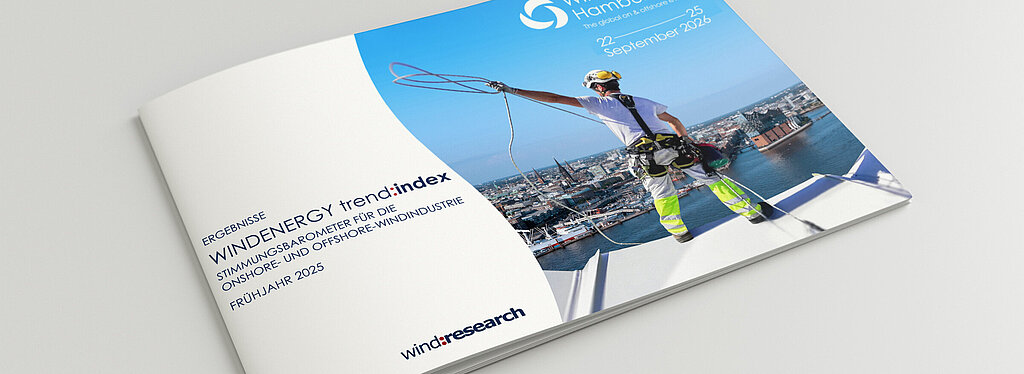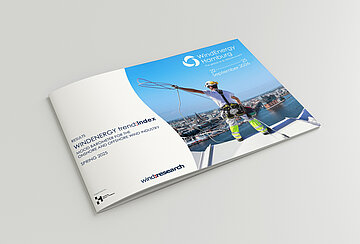Many market stakeholders are viewing the development of the onshore and offshore segments with much more scepticism than last year. While respondents continue to give generally positive ratings to the onshore markets – with the exception of the North American market –, ratings are at a significantly lower level. The mood about the next twelve months is slightly better than for the coming two years.
Expectations for the coming twelve-month period in the offshore segment are showing a similarly distinct decline. This is even more pronounced for the longer-term outlook on the coming two years. Nevertheless, both the short- and long-term assessments for offshore remain in the positive quadrant, again with the exception of the North American market.
Market stakeholders’ perceptions of the North American market are clearly pessimistic now. Not only are the ratings of the market development over the coming twelve months in both, the onshore and offshore segments significantly poorer than in recent surveys but, for the first time, expectations for the longer-term market development are negative. These even more negative expectations for the coming two years are in part attributable to the policy change in the USA under the new administration of President Donald Trump.
Turbine power by 2030: offshore keeps growing, onshore declines slightly
Answers from industry stakeholders to the questions addressing the average output power of newly installed turbines are quite unanimous: The expected average size of a turbine installed offshore in 2030 has increased once again, reaching a new maximum at 19.44 MW on average. Meanwhile, forecasts for the average size of onshore turbines have dropped somewhat to roughly 8.46 MW. This means that the assessment of the technology development, especially in the offshore segment, is not affected negatively by the generally more subdued views of market developments and the economic environment.
New survey question: Grid issues delay new development projects
In the previous WEtix survey, permitting and grid intertie were said to be the biggest hurdles for further expansion of onshore and offshore wind energy. To explore these issues further, the current edition of the WEtix survey asked respondents to indicate the length of delays caused by grid bottlenecks in new development projects. This revealed an average delay period in onshore development projects of 2.8 years. In offshore wind projects, this delay is even more severe, averaging at 3.2 years. These delays once more underline the importance of rapid grid development efforts.
About WEtix
The WindEnergy trend:index, a mood barometer for the wind industry, is jointly compiled by WindEnergy Hamburg, the world’s leading expo for onshore and offshore wind energy, and wind:research, the leading wind energy market research institute. The survey focuses on examining the potential of wind energy, covering both the onshore and offshore segments. More than 900 respondents took part in the current survey between mid-March and mid-May 2025, sharing their assessments of developments in the global onshore and offshore wind industry. The WEtix index covers all onshore and offshore regions globally. The following market regions were defined: Germany, Europe (including Germany), North America, Asia, and Rest of World (RoW). Around 21 per cent of respondents work in the offshore segment exclusively and roughly 38 per cent are primarily active in the onshore segment. About 36 per cent are involved in both the onshore and offshore segments. Companies identifying as “other” (3 per cent) often hail from the hydrogen or photovoltaics industries. The 15th edition of the WEtix survey was additionally offered in Spanish for the first time.
About wind:research:
The market research institute wind:research prepares market studies and analyses as well as expert reports, through to M&A services for the wind energy sector, delivering detailed insights for strategy development to energy utilities, project developers, operators, component and turbine manufacturers as well as municipal, state and federal governments. In addition, it publishes weekly clippings on a wide range of topics such as hydrogen. For further information go to: www.windresearch.de
For questions regarding the contents, interpretation and methodology of the survey or to learn more about wind:research please contact: presse@windresearch.de
pressmaterial for download: https://hmc.canto.de/b/UN8KR


